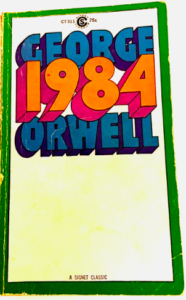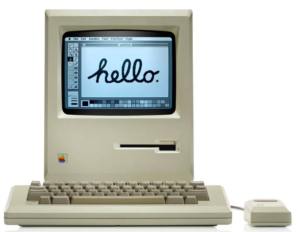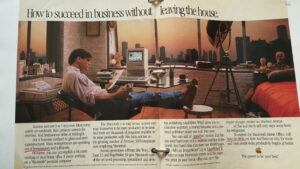by James Scott Bel
@jamesscottbell
![]()
“One may achieve remarkable writerly success while flunking all the major criteria for success as a human being. Try not to do that.” – Michael Bishop
Maybe it’s just me, but has anyone else noticed things are getting a bit, er, heated out there in the arena we call media, both social and news?
I use “arena” advisedly, as it hearkens back to ancient Rome and the bloodthirsty crowds cheering the gladiators in their fights to the death, or the lions tearing apart adherents to a certain religious sect.
Today we have the madding crowd (not maddening crowd, please! Thomas Hardy is turning over in his cubby at Westminster Abbey on that frequent misuse) on X and Meta and Insta and TikkyTak. (Remember talk about YouTube, Twitter and Facebook merging into one site called YouTwitFace?)
Many a writer has added fuel to the fire, which invites (not “begs” please! Though that ship has sailed) the question: is it worth it to risk reputational capital by becoming just another flamethrower on the conflagration of discontent?
I’ll hazard a theory: you lose more readers than you gain that way.
Now, I quickly add that there is a place for calm and cool repartee in social media over issues of moment. If you feel you have to say something, go ahead. Just keep it classy, and be very aware that it’s bloody difficult to keep from getting sucked into tit-for-tat with haters, on their terms. “I learned long ago never to wrestle with a pig,” wrote Shaw. “You get dirty, and besides, the pig likes it.”
So if you’re a writer trying to make a living, or at least some reliable side income, count the cost and weigh the potential ROI before diving into the fray.
That does not mean silence. Writers write. Many a novel has started with the author burning about an issue.
One author asked himself some questions: “Should aggression be opposed by force? How shall an individual stand against tyranny? When is an individual or society to involve himself or itself in another’s affairs? What exactly is the true nature of justice?” That’s why Walter Van Tilburg Clark wrote the classic, The Ox-Bow Incident.
But note that Clark said his purpose was to “not only write as much as I could in dialogue, but to find my way into a typical western story situation, with all the typical western story people, and see if I couldn’t make the people come to life and the situation say something that could still be heard.”
Make the people come to life. That’s the key.
Orwell was impassioned in his essays, but how much more influential are his novels, 1984 and Animal Farm?
Ray Bradbury once remarked that he did not write to predict the future, but to prevent it.
So of course write a story about an issue that burns inside you. But make sure of the following:
- Filter everything through characters who are not mere hand puppets for your hobby horse (how’s that for mixing metaphors?)
- Give every character his or her due, even the bad guys, because—
- Bad guys don’t think they’re bad, they think they’re justified.
- Make sure your dialogue is organic and believable, not part of a “false triangle.”
- Draft angry if you must, but edit serenely. (And please don’t misquote Hemingway, who never said “Write drunk, edit sober.” That would have made him angry!)
- Think long and hard about what you post on social media. It’s going to be there forever.
Or you can write a poem, as I did recently:
Sometimes in life we find ourselves
Engaged in tense exchanges,
In meetings or at social fetes
That someone else arranges.A stranger offers his opinion,
As if it were quite factual.
You beg to differ, have your say
With real facts, quite actual.But then instead of answer calm
You’re accused of being wicked,
And told in no uncertain terms
Where your opinion can be stick-ed.Thus it is, in Twitter world
That conversations vex.
There is no thought or listening,
There’s only scrambled X.Some day perhaps we shall go back
To conversations civil
Where substance is the main concern,
Not vitriolic drivel.And so I say, my angry friend,
Fear not a new opinion.
Better far to think than get
A right-cross to your chinion.
There. I feel better now. Comments welcome.

 Forty years ago this month, three significant events took place.
Forty years ago this month, three significant events took place. It’s been me and Mac ever since, through all the ups and downs, the firing of Steve Jobs, the bringing him back. There was a time many of us thought the Mac might fall into a niche category, overwhelmed by the power of Microsoft. Although when Windows came out, looking suspiciously like the Mac interface, I recall a cartoon that had Bill Gates sitting under a tree, a la Isaac Newton, with the Apple logo falling on his head.
It’s been me and Mac ever since, through all the ups and downs, the firing of Steve Jobs, the bringing him back. There was a time many of us thought the Mac might fall into a niche category, overwhelmed by the power of Microsoft. Although when Windows came out, looking suspiciously like the Mac interface, I recall a cartoon that had Bill Gates sitting under a tree, a la Isaac Newton, with the Apple logo falling on his head.

